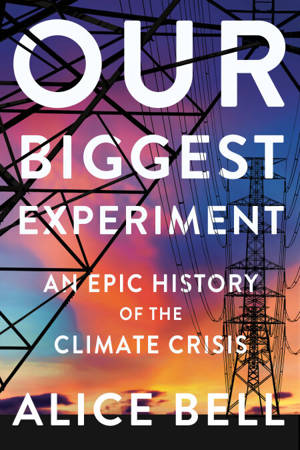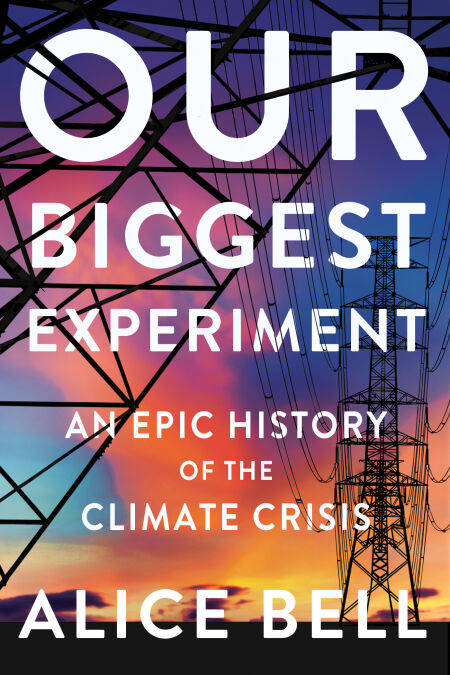
- Afhalen na 1 uur in een winkel met voorraad
- Gratis thuislevering in België vanaf € 30
- Ruim aanbod met 7 miljoen producten
- Afhalen na 1 uur in een winkel met voorraad
- Gratis thuislevering in België vanaf € 30
- Ruim aanbod met 7 miljoen producten
Zoeken
€ 25,62
+ 25 punten
Uitvoering
Omschrijving
Traversing science, politics, and technology, Our Biggest Experiment shines a spotlight on the little-known scientists who sounded the alarm to reveal the history behind the defining story of our age: the climate crisis.
Our understanding of the Earth's fluctuating environment is an extraordinary story of human perception and scientific endeavor. It also began much earlier than we might think. In Our Biggest Experiment, Alice Bell takes us back to climate change science's earliest steps in the eighteenth and nineteenth centuries, through the point when concern started to rise in the 1950s and right up to today, where the “debate” is over and the world is finally starting to face up to the reality that things are going to get a lot hotter, a lot drier (in some places), and a lot wetter (in others), with catastrophic consequences for most of Earth's biomes.
Our Biggest Experiment recounts how the world became addicted to fossil fuels, how we discovered that electricity could be a savior, and how renewable energy is far from a twentieth-century discovery. Bell cuts through complicated jargon and jumbles of numbers to show how we're getting to grips with what is now the defining issue of our time. The message she relays is ultimately hopeful; harnessing the ingenuity and intelligence that has driven the history of climate change research can result in a more sustainable and bearable future for humanity.
Our understanding of the Earth's fluctuating environment is an extraordinary story of human perception and scientific endeavor. It also began much earlier than we might think. In Our Biggest Experiment, Alice Bell takes us back to climate change science's earliest steps in the eighteenth and nineteenth centuries, through the point when concern started to rise in the 1950s and right up to today, where the “debate” is over and the world is finally starting to face up to the reality that things are going to get a lot hotter, a lot drier (in some places), and a lot wetter (in others), with catastrophic consequences for most of Earth's biomes.
Our Biggest Experiment recounts how the world became addicted to fossil fuels, how we discovered that electricity could be a savior, and how renewable energy is far from a twentieth-century discovery. Bell cuts through complicated jargon and jumbles of numbers to show how we're getting to grips with what is now the defining issue of our time. The message she relays is ultimately hopeful; harnessing the ingenuity and intelligence that has driven the history of climate change research can result in a more sustainable and bearable future for humanity.
Specificaties
Betrokkenen
- Auteur(s):
- Uitgeverij:
Inhoud
- Aantal bladzijden:
- 288
- Taal:
- Engels
Eigenschappen
- Productcode (EAN):
- 9781640094345
- Verschijningsdatum:
- 20/09/2021
- Uitvoering:
- E-book
- Beveiligd met:
- Adobe DRM
- Formaat:
- ePub

Alleen bij Standaard Boekhandel
+ 25 punten op je klantenkaart van Standaard Boekhandel
Beoordelingen
We publiceren alleen reviews die voldoen aan de voorwaarden voor reviews. Bekijk onze voorwaarden voor reviews.







